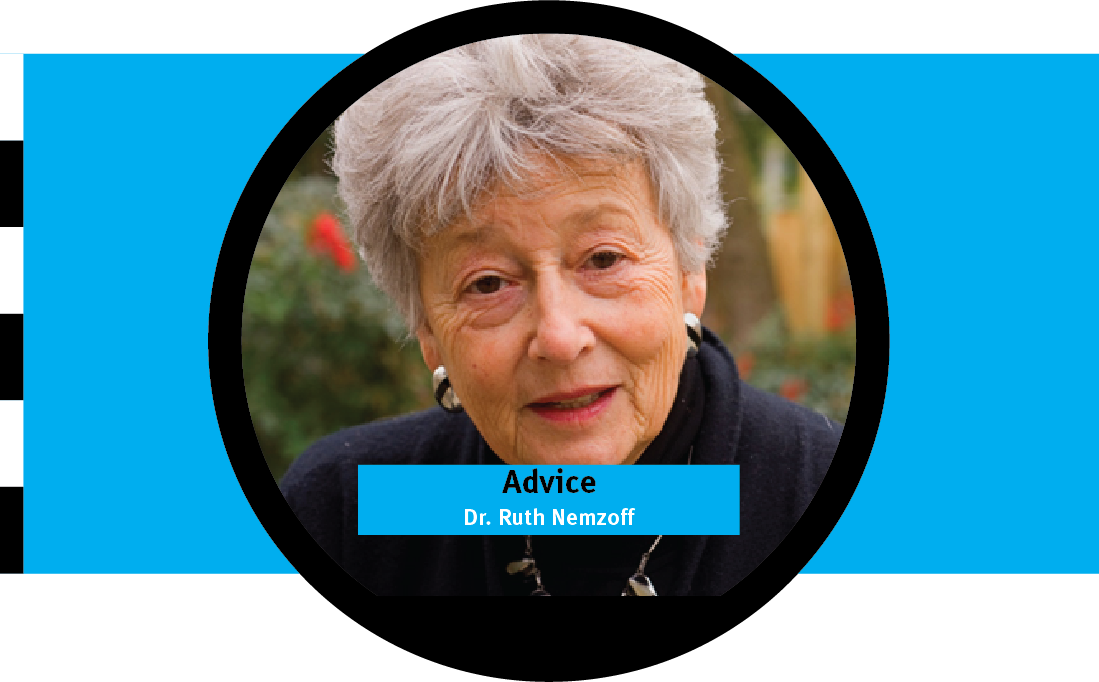Q: I’m a sophomore in college. This is the first year I will not be home for the High Holidays. I come from a semi-observant family. We fast some years, listen to the shofar, and go to break fast. This year, I have to figure out what I’m going to do. The local Hillel is holding services, but they are way more religious and way longer than the ones in my synagogue. I’m hearing about things like tashlich and yizkor that are new to me. Some of my friends are saying, “Since I’m on my own, I don’t have to do any of that, I’m going to party.” I feel kind of paralyzed by choice, but I also feel I must gain a better understanding of Judaism especially in the midst of the antisemitism on campus and the war in Gaza. I want to be proud of my Judaism and be able to defend it. I want to find what’s meaningful to me.
A: Freedom has its costs and one cost is having to make choices. While many of us yearn to be free of any structure, when we are free, choices often feel overwhelming. For most of us, Judaism is not a creed (even the Orthodox differ in their customs). Jews in America, and around the world, practice in a variety of ways. Beyond that, many Jews observe the customs differently at different stages in their lives. We are constantly redefining what is meaningful for us within the context of keeping ties to our past. We are a people who both live in the present and remember the past. Some find that the repetition of customs grounds them. Others find meaning in experiencing the full range of traditions and customs in our faith. Still others welcome the time set aside to reflect on ourselves and our place in the universe. Like you, many Jews in America try to find the balance between the highly prized and rewarded secular individualism and the joys and obligations of community. Every approach has its costs and benefits.
For praying, you may find it very interesting to go to a service that is different from your own. Treat it as a learning experience. Kol Nidre, the opening prayer of the Yom Kippur service, is one of the best examples of how music can reach the soul and express human yearnings. You may find that the music alone is one way to experience Yom Kippur, the conservative prayer book often gives both translations and alternative readings which may help you think about your place as a Jew and your place in the world.
For your information, tashlich is a ceremony where we go to a body of moving water and symbolically throw away our sins. The shofar is also traditionally blown. Many find this fun as well as meaningful. It’s a chance for self reflection on your actions over the past year, things you’re proud of, things you wish you did better. There is a specific value in doing this as a community, when you see everyone casting their sins into the water, you realize that every human being is dealing with their own regrets and aspirations. Some Jews have put a contemporary spin on the process, throwing stones or untreated wood chips instead of bread so as not to disturb nature. There’s also a new “reverse tashlich” ceremony that encourages people to pick up trash and clean our waters. However, you have to be open to making the physical action of tashlich meaningful.
If you are concerned you will lose the fun of partying, fear not, partying means sharing an experience with friends and new acquaintances. You don’t have to make a choice between partying and praying, you can go to a lovely dinner at Hillel, Chabad, or a friend’s house before the fast and a joyous break fast afterwards. Drinks and dancing are one way to party and communing with others over food is another.
Four times a year, on Yom Kippur, Shemini Atzeret, the second day of Shavuot, and the eighth day of Passover, a Yizkor ceremony is held. We say a prayer to remember friends and family members who are no longer with us. This is a chance to place ourselves in context to remember our relatives and the people who gave us life, the people who educated our parents. We remember that we are both a culmination and a continuation. It’s customary now to also remember the 6 million lives lost in the Holocaust. This year, it is exceptionally powerful to remember those killed on October 7th and the war. We are a people of memory with a long history and we pass out traditions on from generations to generation,
Your questioning is consistent with the struggles Jews have had since biblical times. In Genesis chapter 32, we find our ancestor, Jacob, wrestling with G-d. This year, on the New York Times bestseller list, we find a very current version of the same Jewish struggle of humanity’s relationship to the Almighty in Noah Feldman’s book, “To Be a Jew Today.” I recommend these sources to help you consider your options. Whatever you decide, I applaud your struggle and wish you a happy, healthy, and peaceful new year.


